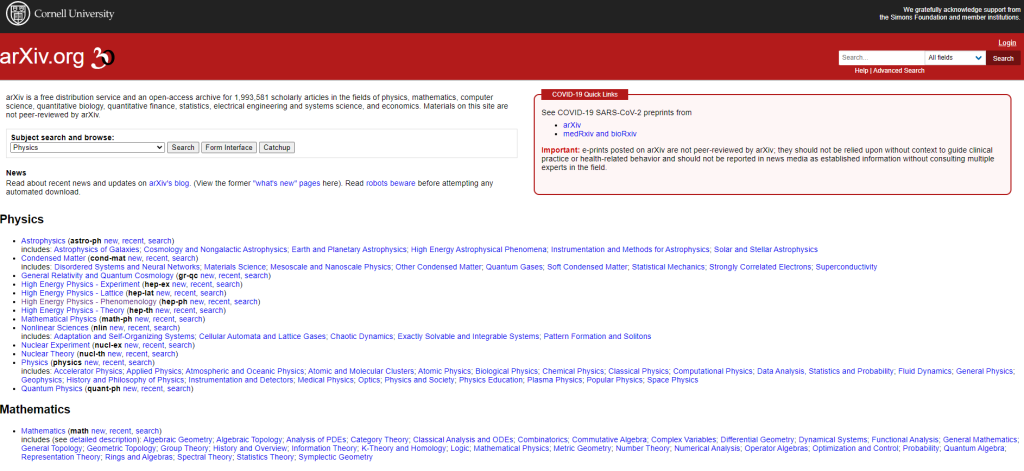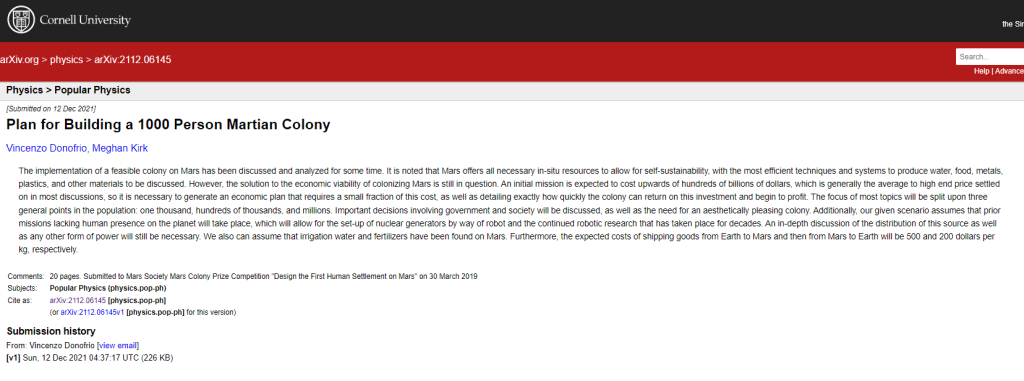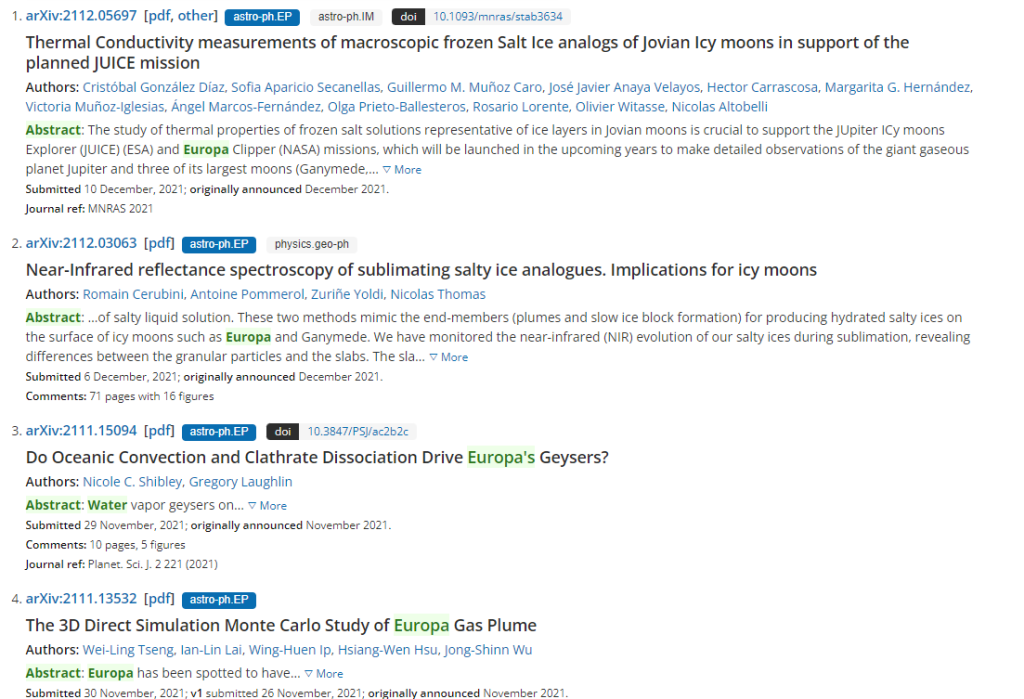
Getting Acquainted with ArXiv
The ArXiv (pronounced “archive”) is a digital library that archives papers in physics, computer science, mathematics, and other scientific disciplines. It was established because not many journals would accept emails for submissions, so scientists wanted to have their work published as soon as possible. Preprints are one method of achieving this goal.

A preprint is a paper that has been sent to ArXiv by researchers. These papers have not yet been published, and they will continue to be updated as more data or comments are added. As a result, it’s not quite as final as a peer-reviewed publication, but the material is accessible for discussion.
Nowadays, ArXiv is used by over 1 million people every day! Here are some tips on how you can use it effectively:
- Search for keywords or topics that interest you. The same boolean rules apply here.
- Read summaries about each paper before downloading them (in the form of abstracts). Also, click on “PDF” and it will open in a new window.
- Reach back out to start discussions with other researchers.
Examples of what’s in ArXiv
There’s a bunch of stuff on here that doesn’t yet fall under PubTrawlr’s purview. For example, check out this neat article on Martian colonies!

And lots of stuff on Europa!

If you’re looking for scientific research on the physical sciences, ArXiv is a website worth checking out. It’s an online library of academic papers that are not published yet and can be accessed by anyone with internet access. You will find all sorts of information on this site – from discussions about the latest findings to abstracts summarizing each paper. If there’s something specific you need help finding, use keywords or click “all” to see what comes up. Once you’ve found your desired article, read through it before downloading it (in PDF form) so you know exactly what information is included in the study or experiment being discussed!
Also, we plan on adding ArXiv data to our catalog in the not too distant future, so stay tuned!



